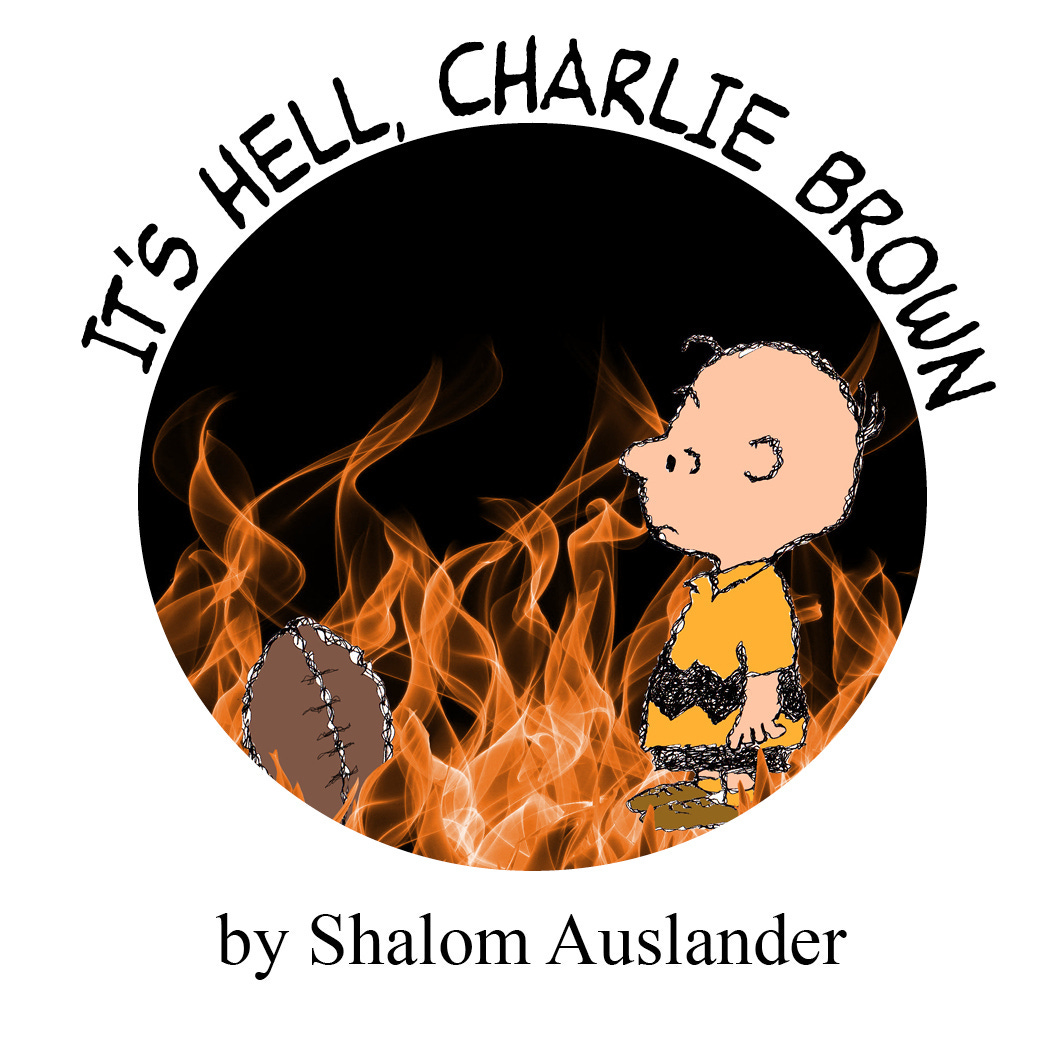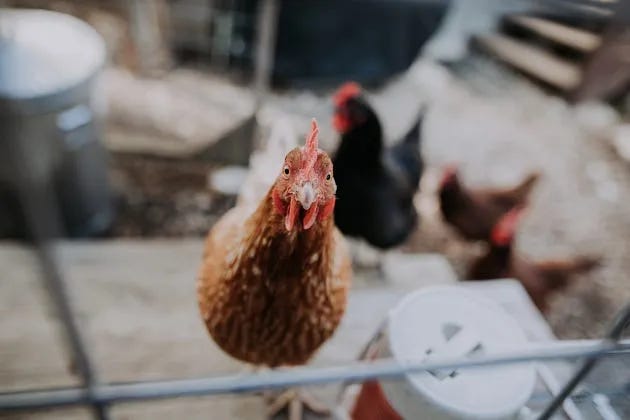🦜Bird-Bolts and Cannon-Bullets VII
The all-reading edition: poetry, humor, criticism, and Charlie Brown

This is the weekly roundup of reading, listening, and other cultural items of interest, but this week it’s all reading (just as last week it was all listening). Usually, these roundups are for only paid subscribers, but through the end of September, they are going out to all subscribers to give you a sense of what you get for the price of a cappuccino per month.
As I was putting together my notes for this edition, it occurred to me that I have creating a false barrier in these Friday posts between my reading for work and my personal reading (or “pleasure reading”). It’s false for two reasons: first, it’s not a barrier for you, Dear Reader, since you are not reading these things for work, and second, it’s not really a barrier for me either, since I enjoy most of my work reading as well. So, my approach here is changing, and I’ll be including interesting work-related reading that I haven’t covered in the more essayistic Wednesday post, which this week was about Jonathan Swift—certainly pleasurable reading! (If you haven’t read Gulliver’s Travels, then by all means put it on your list!) Side note: about half of my survey students had never even heard of Swift or Gulliver.
So, in no particular order, here is what I have been reading this week:
First, Some Brilliant Substack Posts (follow the links)
“It’s Hell, Charlie Brown” from
’s Fetal PositionI’m not (yet) a paid subscriber to Fetal Position, but this particular post makes me think that I am likely to become one. Here is how it begins:
Good grief.
That was the very last thought that crossed Charlie Brown's mind as the streaking baseball slammed into his throat, two inches above the suprasternal notch, flipping him upside down into the air, out of his clothes, and crushing his trachea, causing severe dyspnea that quickly led to respiratory failure (the upside of hypochondria is never having to wait for a diagnosis), and it was the very first thought that crossed his mind when he awoke sometime later, alone, in this old, dimly lit hospital room.
This was his second thought:
Good goddamned grief.
I’m not going to spoil any more. Just go and read it. But be warned: if you read it you will, like me, probably end up subscribing.
“‘Chicken Queen’ Now Streaming on Netflix” from Bev Has All the Answers
Brilliant parody by
—from the documentary that you wish you could watch. An excerpt:I can’t believe I’m even bothering to answer this, it’s so silly. No, I did not kill my ex-husband and feed him to the chickens.
Honestly, how would I even do that? The body would have to be put through a wood chipper first, dried at 350 degrees in an industrial oven like the one my brother-in-law runs over at the GM plant, and then mixed into chicken feed using a ratio of 1 to 4.
Strangling somebody and then throwing them out of a plane would be a lot easier.
Hypothetically speaking.
“Rising and Falling” and “A Terrible Honesty” from Homo Vitruvius by
Anything that I write about these two companion pieces published this week may risk cheapening the profound experience of reading them. I will just add that for me, as for Jay, my initial memory of 9/11 was not of the harrowing video or still pictures but of hands: the hands of my colleague Kathy (who, sadly, we lost a few years ago) showing me what had happened with the planes and the towers, as I stood there, confused, holding my coffee and briefcase, having just arrived at the office. But these are not mere recaps of that terrible day; they are powerful recollections and meditations. Highly recommended.
And now, some “work/pleasure” reading:
Erich Auerbach: “Odysseus’s Scar” from Mimesis
If you read my post “English Majors Will Save the Freaking World,” still by far the most popular thing I’ve written here, you know that I’m teaching a course on the history of literary criticism, which I do every fall semester. While I have written in the past few weeks about our Gorgias, Plato, and Aristotle readings, I don’t have the bandwidth to cover everything here in PCF, so I will discuss some of the other readings in the weekly roundup from time to time.
Erich Auerbach was one of the most important literary scholars of the last century and something of a personal hero of mine. He was a Jewish scholar in Nazi Germany who escaped first to Istanbul (where he wrote Mimesis) and then, eventually, to the United States, where he became one of the founders in this country of the field of comparative literature.
Mimesis is an amazing book because Auerbach essentially takes on the task of explaining the representation of reality through the history of western literature from Homer to Virginia Woolf, implicitly framing his task as a reclamation of the humane literary tradition in opposition to the Nazi fetishizing of the arts as a nationalistic enterprise. Auerbach argues what should be obvious: literature emerges from deliberate and accidental concatenations of disparate traditions and cultures: literature transcends nation, race, creed, even as it explores all of these cultural constructions.
The first chapter, “Odysseus’s Scar” gives us two ancient examples of these diverse traditions: the Odyssey and the book of Genesis. Specifically, he compares two episodes: the revelation of Odysseus’s scar to Eurycleia after the return to Ithaca and Abraham’s interrupted sacrifice of his son Isaac. His analysis of these passages is a brilliant model for students: he builds his argument slowly, inductively, and convincingly through close reading. While in Homer, all details are revealed in a dazzling narrative surface, in the biblical passage, much is left hidden and demands interpretation. Through these stylistic differences, Auerbach is able to demonstrate the relationship between these mimetic representations and the respective texts’ differing approaches to reality and truth claims. Literary style has much to show us about literary culture.
It’s an astonishing, virtuosic performance of critical reading, clearly and engrossingly written, and it forms the foundation for the book’s charting of the trajectories of these two traditions as they gradually merge in various ways in literature. I teach Auerbach (and Simone de Beauvoir and Zora Neale Hurston) alongside Plato and Aristotle because he expands Aristotle’s study of mimesis and helps us to grapple with Plato (as I discussed here and here). If you want to give him a try, I suggest that you start with this chapter from Mimesis, which is still in print and readily available. The chapter also appears in the Norton Anthology of Theory and Criticism and various other anthologies.
And, finally, these are the books on my bedside table:
Code, by Charlotte Pence
I’m not going to say much about this extraordinary collection of poems for the moment, because Charlotte will be featured in my first installment of Conversations with Extraordinary People, which will appear here in a few weeks. Charlotte is my colleague and dear friend, and she directs the Stokes Center for Creative Writing at the University of South Alabama.
I’ll let a brief excerpt suffice for today. Much more to come soon! From “A Pantoum from the Headline: ‘Y-Chromosomal Adam and Mitochondrial Eve Never Met’”:
Oh, prelapsarian puppy-love does avoid post-coital tristesse,
for love is simpler when only molecular, allowing Eve to bypass
crowded rickshaws, kitchen cleanings, and her biological clock.
Time differs. Apples remain polished, unbitten [. . .]
(And if you know the pantoum form, then you know that this language will repeat and recombine in wonderful ways.)
Breath, by James Nestor
I’m reading this for my book club, and I have only just started. The short version of the book’s argument: humans are bad at breathing for a variety of evolutionary and cultural reasons, but we can and should get better at it. I’ll report back after I’ve finished it, but thus far it is compelling.
(Re)Making Love by Mary Tabor
If you read my Stack of the Week last Sunday, then you know that I ordered this after reading
’s serialized version of the book on her Substack. It has arrived!Whew! Yes, I’m reading a lot right now. And I haven’t even listed the reading I’m doing for my research or all of the other things I’ve been reading for work. But surely that’s enough to get you through the weekend, wouldn’t you say? I’ll be back next week with another roundup of reading, listening, etc. What are you reading, listening to, cooking, watching, or contemplating this week? Let me know in the comments.
Thanks for reading, from my fancy internet typewriter to yours.












I just realized that clicking on the links here will take you not to the individual posts but to the newsletter front page. Apologies: I’m not sure if I’m doing it wrong, or if this is on Substack’s end. In any case, you may have to scroll to find the individual posts.
I've said before, with so many others, that one reason to embrace Substack, if you're a writer or a reader, is that it's the platform, and the social media, for writers and readers, together, and it enables such generosity of support among its writers. Many thanks to you, John, for recommending my essays but also for everything else you recommend ,Substacks and indvidual posts and outside reading and art and music. I've already read what I could quickly from this list, including some hilarious Substackers and I'm even inspired to go back to Auerbach: I see my old highlighting on Odysseus' Scar from the past. I'll be interested to see how my current responses match up. You're an education every week and should be read.